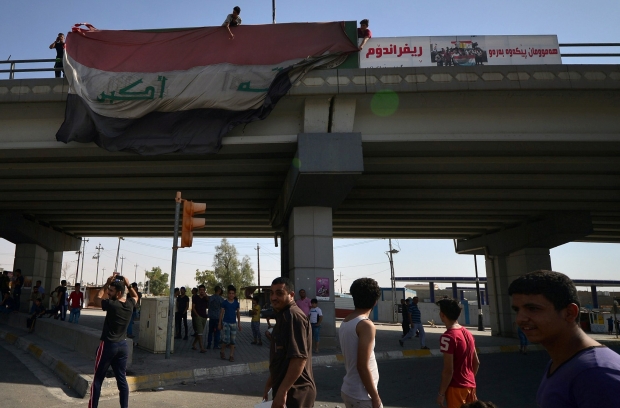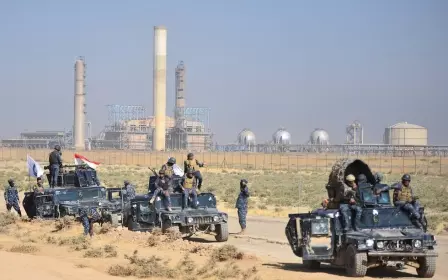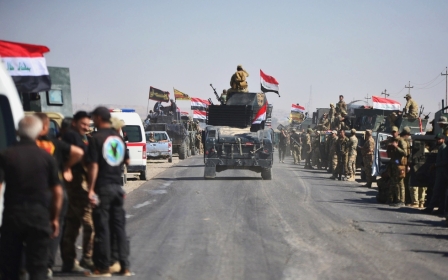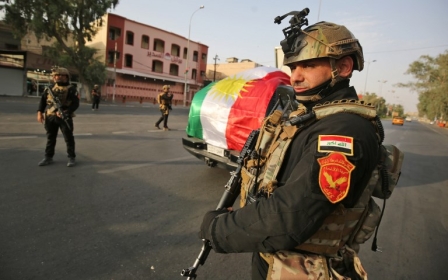How to resolve the Kirkuk crisis
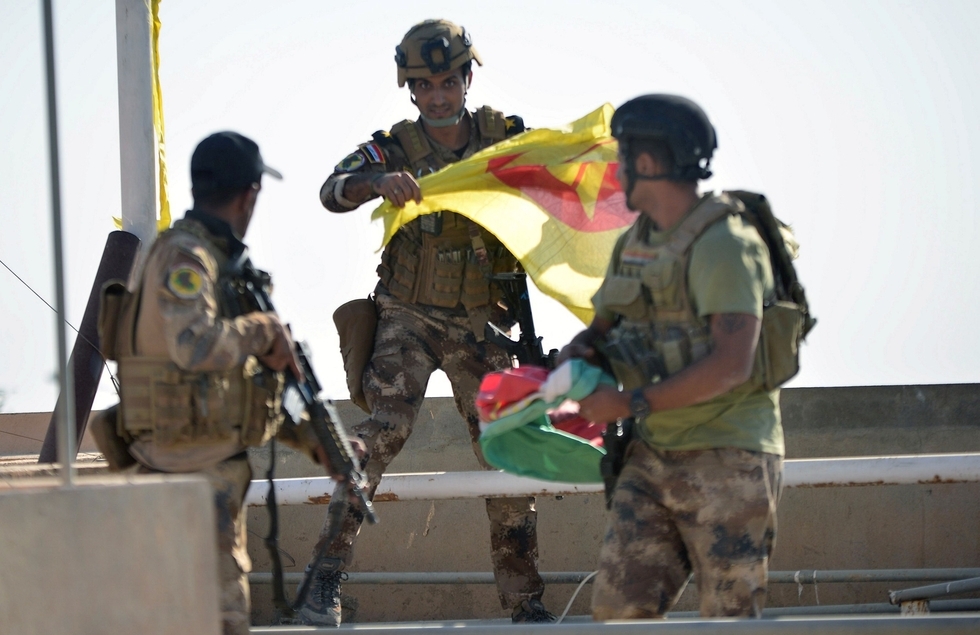
The showdown over the Iraqi city of Kirkuk has been brewing for more than three years between the central government of Iraq based in Baghdad and the Kurdistan Regional Government (KRG) based in Erbil.
As the Islamic State (IS) group was expelled on 5 October from its last urban stronghold in Iraq, Hawija, near the contested city of Kirkuk, it was only a matter of time before Kirkuk itself would become a flashpoint between Baghdad and Erbil.
What is surprising is that the central government acted so soon by sending in army forces to seize the city from the Kurdish Peshmerga, the military forces of the KRG, escalating tensions between both sides in light of the recent Iraqi Kurdish vote for independence on 25 September.
Kurdish land grab
The Iraqi government's seizure of Kirkuk was met with little resistance by the Peshmerga, although there were alleged reports of skirmishes. While a major military battle was avoided, an intense political battle will certainly ensue between Baghdad and Erbil. How the Iraqi political elite manages this tense process will ultimately determine Iraq's future as a unified nation.
The dispute between the central government and the Kurds over Kirkuk has spanned decades. Since at least 1970, the Kurds had been claiming Kirkuk as a Kurdish city and their capital. In the aftermath of Saddam Hussein's fall in 2003, following the US invasion and occupation of Iraq, the city has since been contested by the KRG and Baghdad.
The battle over Kirkuk involves the complex issues of resource nationalism. If the Kurdish parties succeeded in absorbing Kirkuk and its oil, they would have the future economic resources to become independent and command recognition from surrounding countries and the United States, a crucial fact recognised by both the Kurds and the leaders of the Iraqi state.
In June 2014, as IS launched its invasion of Iraq, Kurdish forces secured Kirkuk, which still lies outside of the KRG's jurisdiction. The KRG had preempted IS from seizing Kirkuk, but this action led to accusations from the central government and Shia parties that the KRG capitalised on the chaos to initiate a Kurdish land grab.
The Contentious Article 140
These tensions were put aside while both sides agreed to focus their energies on combating IS. The Kurdish vote on independence and the deployment of Iraqi military forces in Kirkuk on Monday have served as early indicators of the tensions Iraq faces once Baghdad and the KRG no longer have a common foe.
There is one political issue that both Baghdad and Erbil need to resolve to defuse this current crisis: defining Kirkuk's future status, as stipulated in Article 140 of the Iraqi constitution. The central government has delayed on this matter for more than a decade. The events of Monday may finally provide the impetus for the Iraqi state to act.
Special status for Kirkuk would be a painful compromise for both Baghdad and Erbil
Article 140 of the Iraqi Constitution stipulates that a referendum on Kirkuk's future be held to resolve its status. The Kurds hoped to hold this vote by the end of 2007, and supported Nuri al-Maliki as prime minister on the supposition that he would move ahead on this vote. By 2007, as Maliki began to assert more authority, he delayed dealing with this referendum. The issue has been avoided by the central government ever since.
In 2009, the United Nations suggested a compromise with regards to Kirkuk, granting the city - and surrounding area- a special administrative status where it has autonomy from both the central government and KRG. Such a plan was not embraced by Iraq's political class neither in Baghdad nor Erbil, as no Arab politician would want to alienate voters by giving up Iraqi territory, while no Kurdish politician would want to be seen giving up territory of a future Kurdistan.
The UN plan ideally should be revisited as it would be the most realistic scenario for Kirkuk, a multi-ethnic city, consisting of Kurds, as well as Arab and Turkmen who are hesitant about living under KRG control.
Kirkuk and Iraq’s Future
Special status for Kirkuk would be a painful compromise for both Baghdad and Erbil, and it is doubtful any politician in Iraq would agree to compromise as the April 2018 elections approach, for fear of alienating voters. However, once a new government forms, such a plan would be better than leaving Kirkuk in an indefinite status, fuelling political grievances on both sides.
As the historian Phebe Marr and I concluded our volume on The Modern History of Iraq, our "most optimistic scenario" for Iraq’s future would be its survival as a loose Shia-Kurdish alliance, with Arab Sunni political buy in. We wrote "optimistic" because we knew how the status of Kirkuk would ultimately complicate this alliance.
Optimism is in short supply when it comes to Iraq's politics, but resolving Kirkuk would be one step towards achieving this goal.
- Ibrahim Al-Marashi is Associate Professor of Middle East History at California State University San Marcos. His publications include: Iraq's Armed Forces: An Analytical History (2008), The Modern History of Iraq (2017), and A Concise History of the Middle East (forthcoming).
The views expressed in this article belong to the author and do not necessarily reflect the editorial policy of Middle East Eye.
Photo: A member of the Iraqi security forces holds a Kurdish flag in Kirkuk, Iraq, 16 October 2017 (REUTERS)
This article is available in French on Middle East Eye French edition.
Middle East Eye propose une couverture et une analyse indépendantes et incomparables du Moyen-Orient, de l’Afrique du Nord et d’autres régions du monde. Pour en savoir plus sur la reprise de ce contenu et les frais qui s’appliquent, veuillez remplir ce formulaire [en anglais]. Pour en savoir plus sur MEE, cliquez ici [en anglais].



